Will AI replace actuaries?
What is data science and how is it related to actuaries?
That is the main question that Mr Dimitrios Velmachos and Mr Michael Tripp, our keynote speakers aimed to answer in the Actuarial, Insurance, Risk and Quants Society’s latest forum.
As an MSc Actuarial Management student, I’ve greatly benefitted from being part of the Actuarial, Insurance, Risk and Quants Society (AIR-Q) as Co-President. Meeting key industry leaders and discussing developments in the sector has enhanced what I’ve learned in my studies.
Students and alumni who attended were eager to understand what trending topic of AI means for their future careers.
Mr Velmachos wears many hats: he is an entrepreneur, an Insurance Executive and an actuary. He has extensive international experience in the fields of finance, insurance and reinsurance. His main area of focus is utilising his technological skills in advising his clients on how to deliver value to the insurance industry.
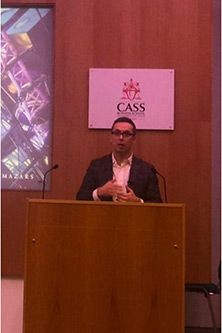
As the first presenter for the forum, Dimitrios discussed how data analytics are transforming the insurance industry. He talked about the algorithms currently in use for risk assessment, claims handling and policy administration. One of the best illustrations he gave was how technology is being used in China to determine the morbidity rate applicable to a policyholder seeking out an income protection policy. By using AI, the insurer can know information such as the client’s lifestyle, health status and even the age without the need of filling out the proposal form. This trend has thus helped curb the uncertainty involved in determining the appropriate cover to be charged.
Mr Velmachos further explained how the data ecosystem has changed when it comes to pricing and reserving in general insurance. Insurers are now investing in advanced systems that can accommodate more data points, unlike ten years ago when actuaries had to rely on Excel as the primary data storage tool. As a result, more data groupings can be accommodated by this modern software which has resulted in better pricing of insurance products.
The speaker also highlighted how the use of telematics has improved policyholder behaviour in motor insurance, thus reducing the number of claims significantly. The use of Google Maps in property insurance has also helped mitigate fraudulent claims arising from such cover. By using such examples, Mr Velmachos concluded that data science is a significant contributor to the digitisation of the world of insurance.
Data Science and the IfoA
Our final speaker Mr Tripp talked about how the Institute and Faculty of Actuaries (IFoA) have started embracing data science by offering courses and assessment to its current members in partnership with the Royal Statistical Society. Being a general insurance actuary with over 40 years of experience in the insurance industry, Michael can comfortably say he has been part of the transformation. Being part of the data science steering committee in the IFoA council, he has helped push forward this transformation.
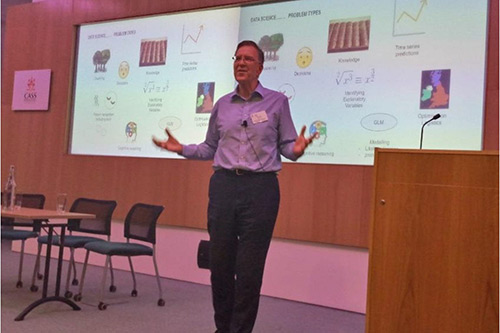
Michael emphasised that the council aims to reposition the actuarial profession by enhancing members’ experience based on what is currently happening in international markets. It is for this reason that the team considered it wise to include elements of programming to some of the professional papers offered by the body to build skills and maintain professional competence.
In his concluding speech, Michael also agreed with Mr Velmachos by stating how artificial intelligence has aided time series prediction, data analysis and modelling and optimising logistics. Thus, by applying these features, AI has been able to use cognitive reasoning in the decision-making process.
What Does the Future Hold for Actuaries?
So, what does this mean for the actuarial profession? Will AI surpass human intelligence in such a way that fewer actuaries will be needed in the future? These, among other questions, were discussed at length during the panel session led by Dr Zoltan Butt, a senior lecturer at Cass Business School and our event moderator for the Cass AIR-Q Actuarial Forum.
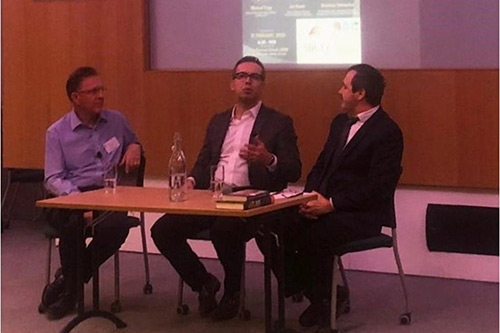
Both speakers disagreed with this notion as actuaries will stay play a big role in making data science a success. It is apparent most systems require some form of human interaction to execute a job. Thus, AI will help make work easier for the role that actuaries play in the insurance and finance market. Dimitrios also stated that although it is not a requirement for excelling in the profession, it would be advantageous for student members to learn some element of programming language.
Michael highlighted that the decision between needing humans or machines is more a philosophical debate. The answer will depend on how you see intelligence: is intelligence natural or artificial?
Thanks to AIR-Q and Cass!
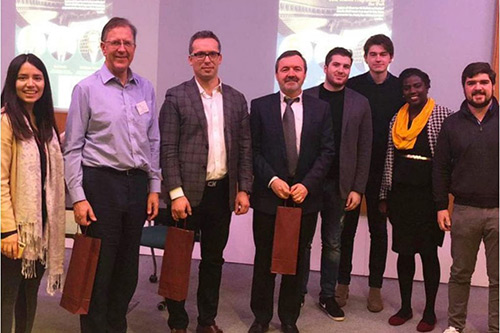
The Cass AIR-Q Actuarial Forum was an eye-opener for the attendees as they were given a chance to interact with the speakers during the networking session that followed the panel discussion. The society aims to bridge the knowledge gap between our student members and the industry— and I can say the forum did justice to this goal.
Myself and the fellow Co-Presidents of AIR-Q Society (Rocio Plasencia, Juan Sebastian De La Torre, Evangelos Santas, Lucy Nondi, David Flanigan, Adam Upenieks and Peter Vodička) would like to deliver special thanks to our speakers, our moderator, and the entire Cass Business School events team. We would also like to congratulate the audience who participated in making the event an engaging one.
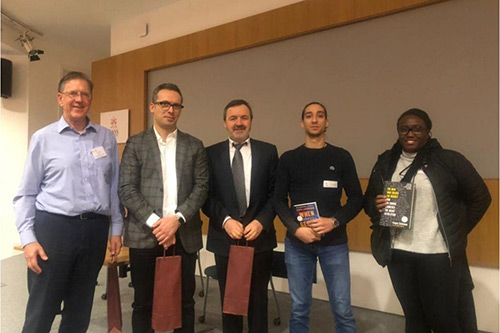
The AIR-Q Society will also like to thank the LSE Actuarial Society representatives that came to offer their support. We are looking forward to meeting you in the next academic year but in the meantime, stay safe and follow the regulation of the government towards fighting the coronavirus pandemic.
Lucy Nondi, MSc Actuarial Management (2020)